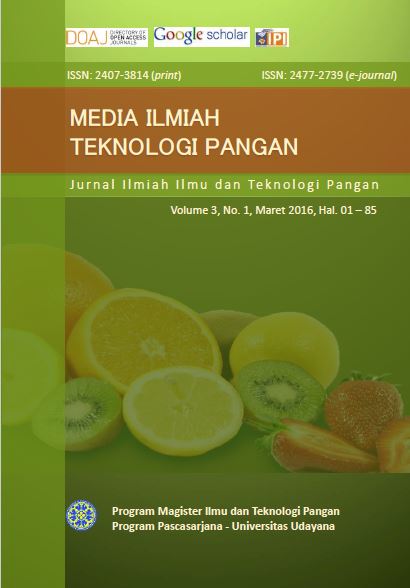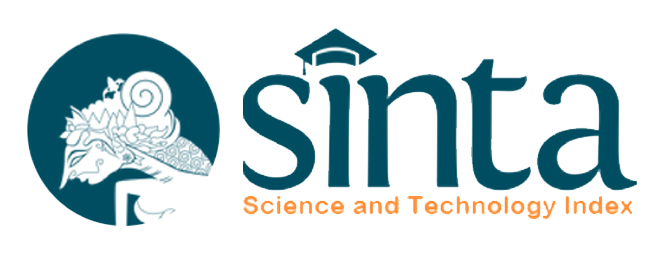Product’s Development Strategy and Market Expansion in Development of Traditional Food as a Product of Culinary Excursion in Bali
Abstract
The purpose of this study was to determine the traditional market would be developed as a culinary tourism by the local government of Level II regions (districts / cities), formulation of activities and facilities needed by the strategy of product development and market expansion, implement strategies that had been selected and defined as conduct training, coaching, and mentoring to traders and waiters in traditional markets that have been determined. The results showed that the chosen market that would be developed markets were “senggol” market (night market) of Tabanan City, Kreneng-Asoka Denpasar, Gianyar City, Klungkung City, and City Park Singaraja. Food vendors who were in these markets got guidance regarding the development of products such as ordinances presentation, use of additives, sanitation, and coaching appearance. Market expansion strategy carried out by making brochures, websites "baliwisatakuliner.com" and the provision of traditional food outlets at every event such as the Feast of Balinese art, Buleleng Festival, Festival Vilage Sanur, Nusa Penida Festival, and the annual events in the Anniversary Exhibition of the Republic of Indonesia.
Downloads
References
Ernayanti. 2003. Ensilopedi Makanan Tradisional di Pulau Jawa dan Pulau Madura. Deputi bidang pelestarian dan pengembangan kebudayaan, asdep. Urusan kepercayaan terhadap Tuhan Yang Maha Esa. Jakarta: Proyek pelestarian dan pengembangan tradisi dan kepercayaan, Jakarta.
Fardiaz, D. 2002. Panduan Pengolahan Pangan Yang Baik Bagi Industri Rumah Tangga, Amankan Dan Bebaskan Produk Dari Bahan Berbahaya. Deput Bidang Pengawasan Keamanan Pangan Dan Bahan Berbahaya Direktorat Surveilan Dan Penyuluhan Keamanan Pangan, Badan Pengawas Obat Dan Makanan, Jakarta.
Gaffar, 2007. Customer Relationship Management And Marketing Public Relations Hotel. Alfabeta, Bandung.
Hendrayana, M. 2011. Strategi Pengembangan Makanan Tradisional Bali pada Hotel di Kawasan Sanur. Thesis S2 (tidak dipublikasikan). Program Pascasarjana, Universitas Udayana
Rangkuti, F, 2006. Analisis SWOT, Tehnik Membedah Kasus Bisnis-Reorientasi Konsep Perencanaan Strategis Untuk Menghadapi Abad 21. Cetakan ke 14. Gramedia Pustaka Utama. Jakarta.
Suryadana, M.L. 2009. Perkembangan Industri Makanan (Kuliner). Disampaikan pada Seminar Sehari CREPS 2009, yang diselenggarakan oleh Program Studi Manajemen Industri Katering, Fakultas Pendidikan dan Ilmu Sosial, Universitas Pendidikan Indonesia Bandung, 14 Oktober 2009
Syamsir, E. 2003. Pangan Fermentasi Tradisional Indonesia. SEAFAST Center IPB, Bogor. Diakses pada Tanggal 2 Februari 2013.
Thaheer, H. 2005. Sistem Manajemen HACCP (Hazard Analysis Critical Control Point), PT. Bumi Aksara, Jakarta.
Virna, E.N. 2007. Wisata Kuliner Bukan Sekedar Nafsu Pemuas Perut. Warta Pariwisata Vol. 9 (1) : 1 – 3.
Wrasiati, L.P., AAPA SWiranata1, IMAS Wijaya. 2014. Development of Traditional Food at Traditional Market as a Culinary Tourism Products (Case Study at Bali Province). Proceeding The 16th FOOD INNOVATION ASIA CONFERENCE BITEC Bangna, Bangkok, Thailand








